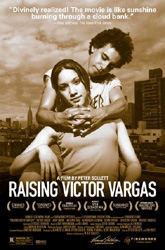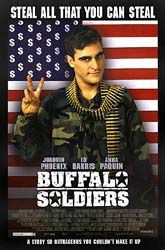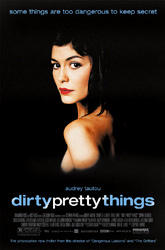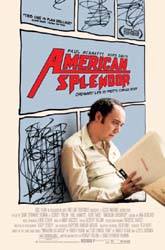 Director: Starring: Release: 28 Mar. 03
|
Raising Victor Vargas BY: DAVID PERRY Raising Victor Vargas begins leaning towards the Larry Clark niche, watching a New York teenager posture before a girl sprawled out in a bed. He is Victor Vargas (Victor Rasuk), a Lower East Side Latino hoping to prove to himself that he is a sexual being, a player. He licks his lips as if this is the absolute of sensuality, smacking insincere kisses as if no one can turn them down. Not that this particular girl would do so: Fat Donna lives up to her name and has a reputation for being easy. But Raising Victor Vargas breaks away from this depraved setting, turning to a comedic, less degenerate tone as Victor is caught and ridiculed before he can do the deed. Now, with his reputation on the line, he must go all-out, get the love of Juicy Judy (Marte), the girl everyone wants but no one can get. And so he moves the posturing to the swimming pool Judy and her best friend Melonie (Diaz) frequent. His family life isnít much better. His grandmother (Guzman) has become increasingly angry with the way puberty has invaded her home, locking up telephones and forbidding visitors. Victor is the brunt of all her anger, blamed for the fact that his sister Vicki (Rodriguez) is nearing her first relationship (it is technically his fault since he introduced her to Judyís brother in return for an introduction to Judy) and that his younger brother Nino (Silvestre Rasuk) has found masturbation. Victor is torn between his family, including a grandmother who took him to social services in hopes of returning him like an unwanted present, and Judy who turns out to be the exact person he needs. The key is compromise, that the household is large enough, loving enough to include Judy and all the baggage she might bring to the clan. Itís not going to be easy, but itíll be worth it. The film is charming, never ponderous, and always easygoing. What is so likable about Raising Victor Vargas is that it never devolves into the type of Larry Clark film its cinematography, setting, and characters seem incidentally so close to. Director Peter Sollett chooses to carefully present these characters as living, breathing teenagers, not political statements, sociological experiments, or commercial ventures. These are not the pretty faces who often come into Hollywood film, they are the kids I see when I walk around Lower Manhattan, the people whose lives would make great movies even if they donít overcome adversity and find histrionic drama for Denzel Washington to pick it up for an unknown pretty face to play. And this gives the film a great sense
of realism that is content with life instead of critical. The ultimate
statement of Raising Victor Vargas is the importance of family, but it tells
it with such a simple, flexible style that never does the film become preachy.
A mere 88 minutes in length, the movie feels shorter and leaves the audience
wanting more. Like the best realist cinema, it brings to life convincing
characters whose little dramas are interesting enough to merit added
attention. It is always rare for me to ask that a film be longer, but I
canít help but get that impression of Raising Victor Vargas. Better yet,
taking a cue from the soulless Hollywood films Vargas is competing against,
thereís evidently an audience for sequels. |
|
| ©2003, David Perry, Cinema-Scene.com, 15 August 2003 | ||







